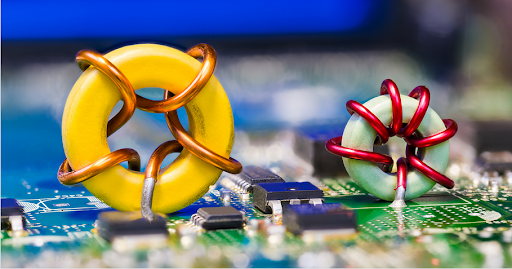Certificate III in Instrumentation and Control

What Is A Certificate III in Instrumentation and Control?
A Certificate III in instrumentation is a vocational qualification designed to equip apprentices with the skills and knowledge needed to work in instrumentation and control systems. These programs provide comprehensive training in electrical circuits, instrumentation installation, calibration, and troubleshooting of control systems.
If you are interested in starting or advancing an electro-tech apprenticeship with 1300Apprentice, we support you through the completion of your Instrumentation and control apprenticeship.
What is Instrumentation and Control?
Instrumentation and control is the art and science of measuring and regulating variables within various industrial processes, such as production or manufacturing. These variables may include levels, temperature, flow rate, pH levels, pressure, speed, etc.
By monitoring and adjusting these variables, instrumentation systems contribute to optimising industrial operations, leading to greater efficiency and quality output.
Instrumentation plays an important role in:
- Ensuring the safety of processes
- Enhancing productivity
- Improving reliability
- Managing operational costs effectively
- Automate industrial processes.
What You’ll Learn in an Instrument Technician Apprenticeship?
Solving problems in DC circuits
- Fixing and securing electrotechnology equipment
- Understanding the fundamentals of electricity
- Programming advanced PID control loops, PLCs, and HMIs
- Disconnecting and reconnecting control devices
- Installing electronic instruments and control systems
- Applying knowledge of electrical and electronic principles in commissioning and maintaining control systems
Measurement and Control
- Measuring and controlling instruments
- Solving problems in measurement circuits and systems, including temperature measurement circuits
- Selecting, installing, setting up, testing, fault finding, repairing, and maintaining systems and devices for measurement, recording, and control
- Adjusting, repairing, replacing, and maintaining machines, equipment, instruments, and control systems
Safety and Operational
- Applying environmental and sustainable procedures in the energy sector
- Using tools safely and correctly
- Advising users of correct operating procedures to prevent malfunctions
Communication Tasks
- Receiving, interpreting, writing, and transmitting messages
- Monitoring radio traffic and transmitting and receiving voice messages
- This categorisation provides a clearer breakdown of the tasks typically performed by an instrumentation and control technician
The Instrumentation apprentice
As an instrumentation apprentice, you will gain essential skills including:
- Practical hands-on experience
- Problem-solving abilities
- Exposure to various industries
- Calibration and testing proficiency
- Effective communication
- Adherence to safety protocols
- Continuous learning and adaptation
Future Career Paths
- Certificate IV in Instrumentation & Control.
The 1300apprentice Difference
For apprentices seeking opportunities in instrumentation and control, our extensive network of employers offers diverse placement options across various industries.
At 1300apprentice, we are committed to the success of our trainees and the satisfaction of our employers. We provide personalised support and guidance throughout the apprenticeship journey, ensuring that both the apprentice and the employer are set up for success.
We can help with:
- Wages
- Allowances
- Annual leave & annual leave Loading
- TAFE/RTO fees
- Mentoring & support
- WHS/PPE
For further information on how we can help you, explore our website or contact our team directly.
Tasks
- Measuring and controlling instruments
- Solve problems in DC circuits
- Fix and secure electrotechnology equipment
- Solve problems in measurement circuits and systems
- Solve problems in temperature measurement circuits
- Apply environmental and sustainable procedures in the energy sector
Future prospects
- Certificate IV in Instrumentation & control
Also known as
- Electronic instrument tradesperson
- Instrument fitter
If you like
- Problem solving
- Have an above average computer aptitude
- Practical hands-on work
- Working independently and as part of a team
You may also like
We look after
- Wages
- Allowances
- Annual leave & annual leave Loading
- TAFE/RTO fees
- Mentoring & support
- WHS/PPE
Fact
A certificate III or IV level is required to do this job, Around 65% of Electronics Trades Workers live in capital cities. (LabourMarketInsights.gov.au)
